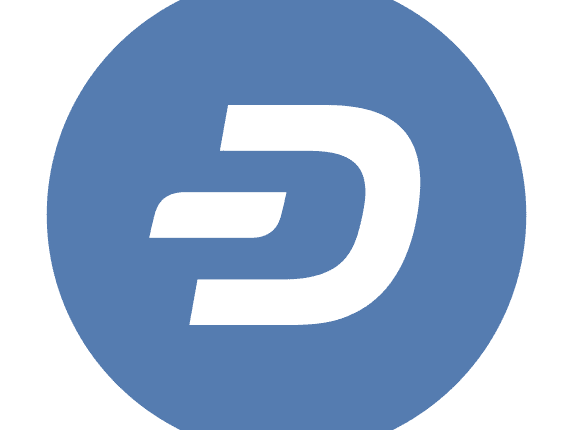
#SundayInterview. Cryptocurrency accessible for all
„At Dash, we have always been focused on making cryptocurrencies accessible to everyone, no matter their technical background. The Evolution platform will help make that happen” – claim Ryan Taylor, CEO, and Robert Wiecko, COO and Head of Project Management at Dash Core Group, in Bithub.pl’s #SundayInterview.
One of the attractors of cryptocurrencies is the alleged anonymity of transactions they’re used for. But this feature is illusory in many cases. Could you explain how so?
The underlying technology behind cryptocurrencies is blockchain, which is the communication protocol between cryptocurrency and counterparties. The open, decentralized ledgers are made to secure transactions in a verifiable and permanent way. Although specific names are not available, the public ledgers create and show records each time money is sent or received, allowing transactions to have „public witnesses.” The integrity of communication is extremely reliable, as the shared database is encrypted, protecting it from tampering, revision, or deletion.
With this, however, one of the attractors of cryptocurrencies is the alleged anonymity of transactions. Transactions are recorded and made public, but they are only linked with an electronic address that cannot be traced. However, contrary to popular belief, Bitcoin and many other types of digital currencies are not anonymous. Bitcoin is pseudonymous. Each identity is tied to a public key, which consists of a long string of numbers that act as a Bitcoin address.
Since blockchain is open-source, there is an incredible amount of data to analyze. It consists of detailed information, including values, time, recipient, sender, and context of each transaction. Because of the data’s accessibility, analysis techniques can be used over a long period of time to uncover the identity of the individual linked to the Bitcoin address.
In Satoshi’s original whitepaper, he recommended Bitcoin users use a new address for new transactions to avoid transactions being linked to users. However, because of multi-input transactions, this cannot guarantee full anonymity.
Unlike Bitcoin and other cryptocurrencies, Dash consists of a two-tier network. One tier is controlled by miners and the second tier consists of several masternodes that perform different types of functions, including InstantSend, PrivateSend, and governance functions. Instead of using a single tier for transaction confirmation, the Dash network uses both – miners and masternodes. The InstantSend functionality allows for users to transfer payments at a much faster speed. The masternodes are also very effective in preventing Sybil attacks. Dash’s privacy system has proved its effectiveness, however, less than 1 percent of users use that functionality.
What kind of work is Dash doing in Venezuela?
Known as the payments digital currency, Dash has focused much of its attention and resources in Venezuela to integrate Dash as a viable and reliable payment option. Venezuela has been suffering from hyperinflation these last few years, and people cannot rely on the national currency. With the collapse in oil prices and nearly two decades of social policies, there has been an incredible recession with one of the world’s largest inflation rates. Because of the high inflation, a majority of Venezuelans are unbanked, underbanked, or simply do not want to use the traditional banking system.
Since the inflation has been alarmingly high, many Venezuelans are struggling to purchase basic necessities, whether its groceries or shelter. People have since been looking for an alternative for a more effective way to store, spend, and share their money. We are seeing a huge demand for Dash in Venezuela through our support line, inquiries, and online forums. More and more merchants, such as at grocery stores and restaurants, are accepting Dash as a payment option, providing users with incredible benefits.
Transaction fees on the Dash network are much lower than other digital financial services, and the Dash wallet is free of charge. Even the slightest difference in transaction savings can help someone’s economic situation. In addition, after Dash’s latest 12.2 network upgrade, Dash is about 200 x cheaper than Bitcoin and has eight times the capacity to verify transactions every second.
We have also partnered with many great companies to make Dash more accessible in Venezuela and other South American countries. For instance, we recently partnered with Mercury Cash whose mission is to create a regulated bank for the new digital generation. The integration has provided users with a seamless way to acquire Dash with a linked debit or credit card. The South American-based exchange works with 35 banks across 12 countries, which has provided greater access to Dash in Latin America.
Dash has also recently partnered with BitINKA, a top South American exchange. This partnership has allowed users access to buy and sell Dash using their local fiat currency in 12 countries, including Brazil, Chile, Colombia, Peru, Bolivia, Argentina, Spain and Venezuela.
Dash’s partnerships have provided citizens of Venezuela and other Latin American countries a truly decentralized alternative to government-based currencies, in addition to secure, near-free, and InstantSend transactions. Digital currencies are being viewed as a superior store of value, and we strive to continually look for new partnerships to further increase Dash’s presence in Venezuela and other emerging markets.
What are the other features that, in your opinion, make Dash superior to Bitcoin and other cryptocurrencies?
One of the greatest aspects about Dash is our self-governance network and funding model. The Dash network has wanted to address three key issues: governance, privacy, and transaction speed. The masternode owners take part in voting for or against monthly proposals, in addition to determining the allocation of funding. They also make other key network decisions, including strategic project direction, branding selection, which advertising agency to work with, which contractors to work with etc. Dash’s collaborative and interactive community is made up of almost 5,000 masternodes and hundreds of thousands of users around the world.
There are three major components to this network: mining (provides security to the network), masternodes (infrastructure and services), and treasury- supports everything else. Dash’s self-governance model assures Dash continually has a decentralized and inclusive network and strategy.
Dash is also different than other cryptocurrencies due to is its speed, low cost, ease of use and accessibility. Dash’s many unique features have allowed Dash to become the leading payments-focused and e-commerce cryptocurrency.
Dash has almost lighting speed transactions through its InstantSend functionality. Dash’s ability to transact near Visa-like speeds makes Dash ideal for commerce partners. It is able to work through the network’s masternodes. The transaction is first sent to randomly selected group os masternodes. The group then locks the transaction so it cannot be double spent and sends a confirmation. The transaction is added to the ledger as part of a future block, but the transaction is guaranteed to get paid since the masternode has locked the funds. InstandSend transactions can receive the verification in just a few seconds. Dash’s masternodes provide the solution for InstantSend transactions, truly making Dash unique.
You’ve created Evolution, a decentralized payments system. How does it work and how does it relate to Dash as a cryptocurrency?
At Dash, we have always been focused on making cryptocurrencies accessible to everyone, no matter their technical background. The Evolution platform will help make that happen by providing a decentralized, Venmo-like experience to users and simplicity in integration (comparable to Stripe). We recently released the Evolution provisional patent. The patent deals with the registration and storage of metadata related to the blockchain-based user accounts on Evolution’s platform.
Evolution is going to greatly improve Dash’s network; we believe it will be the payments system of the future. It will help millions of users around the world the ability to carry out instant, secure and near fee-free transactions. We’re looking to release the Evolution MVP late 2018.
Evolution will allow users to store their accounts and data in the decentralised networks opposed to seeing cryptographic addresses or creating the ability to have data contracts. The user can log-in to to that software on multiple devices and have the decentralized-payments user experience. It’s similar to a Venmo or Pay-Pal layout where a user can send and receive money from his or her contact list. A list of acquaintances the user friended and accepted friend requests from. As the payments-based cryptocurrency, we want to make receiving and transferring money as seamless and user-friendly as possible, and Evolution will help us do that. Essentially, Evolution will help the mass adoption for cryptocurrency
Merchants can easily integrate this platform and it will be easy and quick for customers to pay with Dash. Our goal in this is to make using cryptocurrency on a daily basis more accessible for the average person who may not have a technical background.
Recently you’ve signed a partnership with Spanish startup Bitnovo to bring the cryptocurrency to 10,000 retailers throughout Spain. That’s quite innovative way for a cryptocurrency to reach out to people. What kind of return on this 'investment’ do you expect?
Partnering with Bitnovo, the Spanish cryptocurrency payment platform, will help us provide access and accessibility to the masses, Bitnovo allows users to buy and sell cryptocurrencies using ATMs, gift cards, and vouchers in over 10,000 retailers throughout Spain. The platform also allows users to pay remittances.
The main return on this „investment” is to ultimately create more widespread adoption of digital currency. The main barrier to the global adoption of digital currency is the difficult path to entry. Bitnovo is located in Spain and has plans to rapidly expand into Portugal, Italy and the UK.
Interview by Przemyslaw Cwik
e-mail: p.cwik/at/bithub.pl

